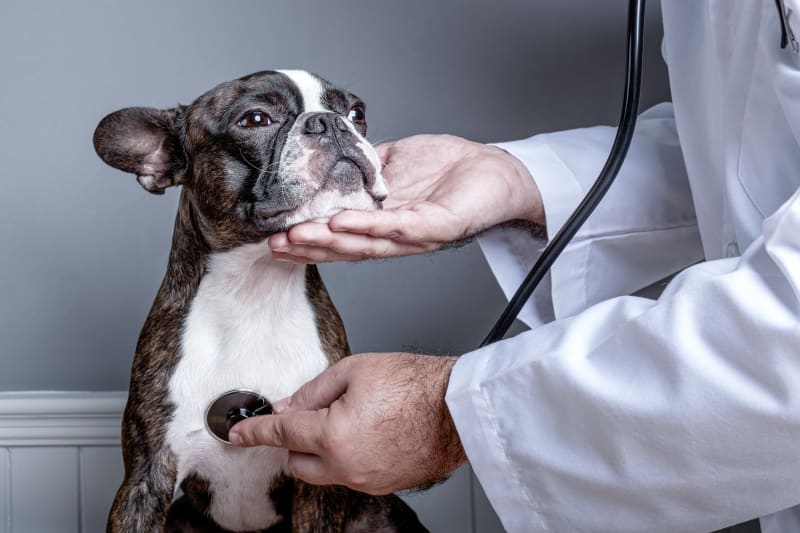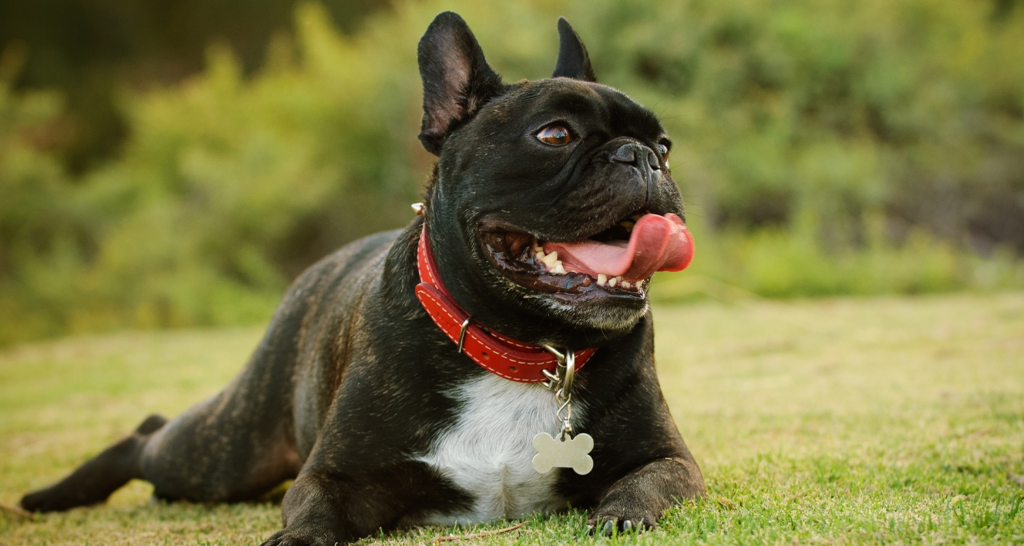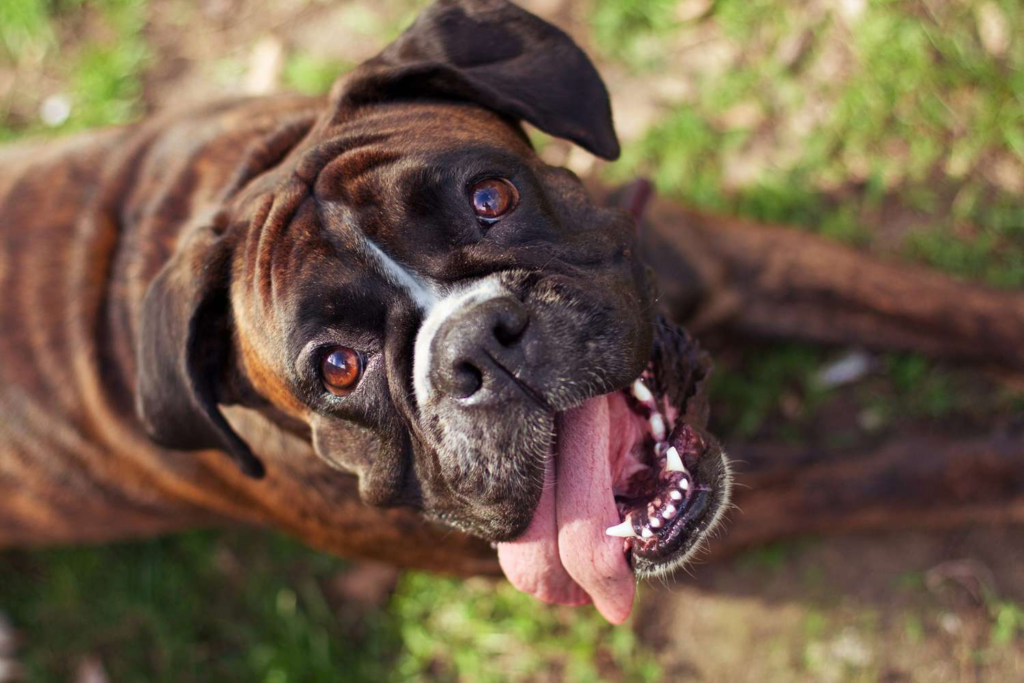Dog Heavy Breathing

Dog Heavy Breathing:- Heavy breathing in dogs and puppies involves quick, labored, or strained breaths. While it’s often a natural response after exercise or when your dog is trying to cool off, there are instances when it can signal a problem. Rapid, heavy breathing might indicate an underlying health issue. In more severe cases, it could mean your dog isn’t getting enough oxygen to vital tissues and organs.
Recognizing Heavy & Fast Breathing in Dogs
To identify abnormal breathing or excessive panting in your dog, it’s important to understand their normal breathing pattern. A healthy dog typically takes 15 to 35 breaths per minute while resting. Naturally, your dog will breathe more heavily or pant during physical activity, but if you notice more than 40 breaths per minute when they’re at rest, it could indicate a problem that requires attention.

That said, panting isn’t always a sign of trouble. It’s your dog’s natural way of cooling down, regulating their body temperature, and allowing heat and moisture to escape through their mouth, tongue, and upper respiratory tract.
Since dogs can’t sweat like humans, they rely on faster breathing to circulate air and cool their bodies down. Panting helps your dog return to a normal temperature when they’re overheated.
Heavy breathing in dogs can be a sign of various medical issues, including:
1. Left-sided Congestive Heart Failure (Pulmonary Edema):** This condition occurs when the left side of the heart struggles to pump blood effectively, often due to a narrowed valve. As a result, blood can back up into the left atrium, increasing pressure in the heart and lungs, and leading to fluid buildup in the lungs.
2. Pain: Dogs experiencing pain may breathe heavily or pant. For example, a dog with pancreatitis may suffer from significant abdominal pain, resulting in increased breathing effort.
3. Pneumonia: Infections caused by viruses, bacteria, or fungi can inflame and infect the lungs, leading to symptoms like heavy breathing, coughing, nasal and eye discharge, lethargy, fever, and reduced appetite.
4. Bronchitis: Chronic inflammation or reduced elasticity in the airways can cause persistent heavy breathing and coughing.
5. Heartworm Disease (Right-sided Congestive Heart Failure): Heartworms can obstruct blood vessels between the heart and lungs, leading to scarring in the lungs and causing congestive heart failure. Even after treatment, the lungs may have permanent scarring, reducing airway flexibility.
6. Cancers: Tumors affecting the larynx (the airway’s start), trachea (the airway tube), or lungs can cause heavy breathing.

Helping Your Dog Recover from Heavy Breathing
If your dog is experiencing heavy breathing, whether due to a temporary issue or a chronic condition, it’s important to give their respiratory system time to rest and heal. Ensure your dog stays well-hydrated and keep them in cooler environments as much as possible to aid their recovery.
If your veterinarian has prescribed medication, make sure to administer it exactly as directed to prevent future episodes of heavy breathing. While your dog is recovering, monitor them closely and reach out to your vet if you notice any new or worsening symptoms to avoid complications.
Always err on the side of caution if you’re concerned about your dog’s breathing. Although many cases of heavy breathing are minor and temporary, it’s especially important to address any concerns promptly in older dogs or those with preexisting health issues. Most isolated incidents of heavy breathing are treatable and unlikely to recur.
How will the vet diagnose the cause of my dog’s fast breathing?
To diagnose the cause of your dog’s rapid breathing, your vet will conduct a comprehensive examination. They will assess whether the issue is related to heart function, the lungs, the airway, the neck, the head, or other areas. Your dog’s overall health condition may also contribute to the problem.
Your vet will review your dog’s medical history and might suggest diagnostic tests like X-rays to evaluate the heart, lungs, and abdomen for potential issues such as tumors or fractures. Additionally, the vet will check for signs of anxiety, stress, or other emotional factors that could be causing the rapid breathing.

Here’s how you can help your dog breathe easier:
1. Visit Your Vet: The first and most important step is to consult your veterinarian as soon as possible. Your vet will perform a physical exam and may recommend blood tests, X-rays, or other diagnostic procedures to determine the cause of your dog’s breathing difficulties.
2. Follow Medical Advice: If your vet prescribes medication, administer it exactly as directed and attend all follow-up appointments. Your vet will also provide guidance on your dog’s treatment plan and what to expect during their recovery.
3. Adjust Home Environment:
– Avoid Heat and Humidity: Keep your dog in a cool, comfortable environment by using air conditioning or opening windows for proper ventilation.
– Manage Excitement: Minimize activities that could excite or stress your dog.
– Modify Exercise: Reduce the intensity and duration of exercise. Allow your dog to rest and recover, and never force them to exercise if they seem uncomfortable.
By taking these steps, you can help ensure your dog remains as comfortable as possible while they recover.
How is fast breathing in dogs treated?
The treatment for rapid breathing in dogs depends on the underlying cause. Your vet might prescribe pain relief, intravenous fluids, or other medications to address the issue and help your dog recover.
If stress or anxiety is causing fast breathing, a certified dog behaviorist may suggest specialized training.
Initially, your dog will likely need rest and possibly oxygen therapy to begin healing. While many dogs can be treated at home, severe cases may require hospitalization for close monitoring and treatment of the underlying condition.
Also Read:-




